
Carolyn Gramling is the Earth & Climate writer at Science News. Previously she worked at Science magazine for six years, both as a reporter covering paleontology and polar science and as the editor of the news in brief section. Before that she was a reporter and editor at EARTH magazine. She has bachelor’s degrees in Geology and European History and a Ph.D. in marine geochemistry from MIT and the Woods Hole Oceanographic Institution. She’s also a former Science News intern.

Trustworthy journalism comes at a price.
Scientists and journalists share a core belief in questioning, observing and verifying to reach the truth. Science News reports on crucial research and discovery across science disciplines. We need your financial support to make it happen – every contribution makes a difference.
All Stories by Carolyn Gramling
-
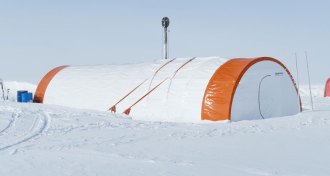 Climate
ClimateA drill built for Mars is being used to bore into Antarctic bedrock
An autonomous drill originally designed for work on Mars has its first mission in Antarctica.
-
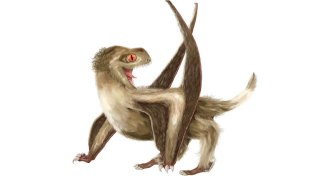 Paleontology
PaleontologyPterosaurs may have been covered in fur and primitive feathers
A new study provides evidence of plumelike structures in ancient flying reptiles.
-
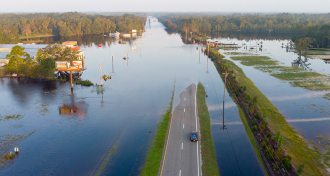 Climate
ClimateHalf a degree stole the climate spotlight in 2018
Climate attribution studies and new data on global warming targets put climate change in the spotlight this year.
-
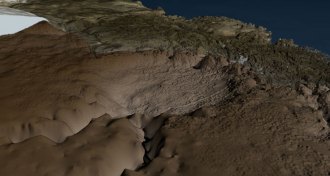 Earth
EarthGreenland crater renewed the debate over an ancient climate mystery
Scientists disagree on what a possible crater found under Greenland’s ice means for the Younger Dryas impact hypothesis.
-
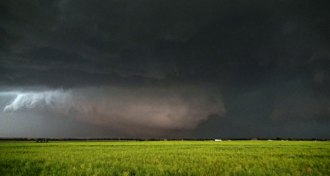 Climate
ClimateNew research may upend what we know about how tornadoes form
New data on the birth of tornadoes suggest that the twisters don’t form from the top down.
-
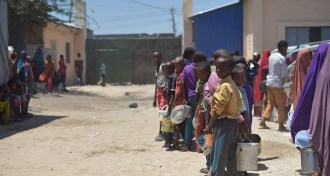 Climate
ClimateThe list of extreme weather caused by human-driven climate change grows
The tally of extreme weather events linked to climate change continues to grow, with new studies outlining links to more than a dozen events in 2017.
-
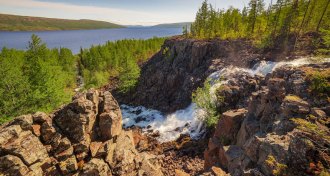 Oceans
OceansVolcanic eruptions that depleted ocean oxygen may have set off the Great Dying
Massive eruptions from volcanoes spewing greenhouse gases 252 million years ago may have triggered Earth’s biggest mass extinction.
-
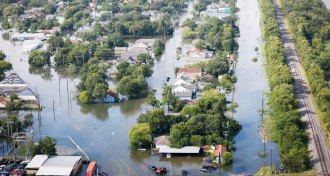 Climate
ClimateHere’s how much climate change could cost the U.S.
A report by hundreds of scientists from 13 federal agencies starkly outlines the economic impacts of climate change on the United States.
-
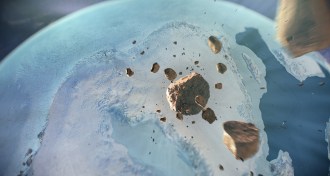 Earth
EarthA massive crater hides beneath Greenland’s ice
The discovery of a vast crater in Greenland suggests that a 1-kilometer-wide asteroid hit the Earth between 2.6 million and 11,700 years ago.
-
 Paleontology
PaleontologyEggs evolved color and speckles only once — during the age of dinosaurs
Birds’ colorful eggs were inherited from their nonavian dinosaur ancestors.
-
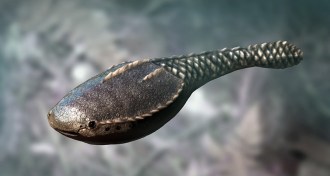 Paleontology
PaleontologyThe first vertebrates on Earth arose in shallow coastal waters
After appearing about 480 million years ago in coastal waters, the earliest vertebrates stayed in the shallows for another 100 million years.
-
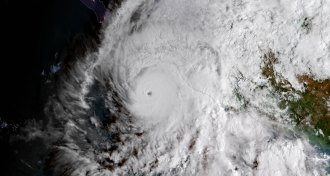 Climate
ClimateHurricane Willa breaks an eastern and central Pacific storm season record
The combined might of eastern and central Pacific hurricanes produced a record-breaking year of storm energy.